Search Results
Showing results 1 to 20 of 41
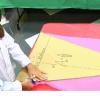
Full of Hot Air: Hot Air Balloon Building
Source Institutions
In this activity, learners create a model of a hot air balloon using tissue paper and a hairdryer. Educators can use this activity to introduce learners to density and its role in why things float.
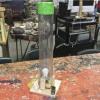
Wind Tube
Source Institutions
In this activity, learners explore moving air and the physics of lift and drag by constructing homemade wind tunnels.
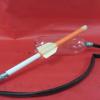
Stomp Rocket
Source Institutions
In this activity, learners build rockets and shoot them into the air by stomping on the plastic bottle launchers.
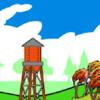
The Great Balloon Race
Source Institutions
In this online Flash game, learners take to the skies in a hot air balloon and are challenged to beat other balloonists' times to the finish line without crashing.
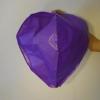
Hot Air Balloon
Source Institutions
In this activity, learners build a hot air balloon using just a few sheets of tissue paper and a hair dryer.

Weather Vane
Source Institutions
In this meteorology activity, learners build weather vanes using straws, paperclips, and cardstock.
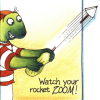
Zoomers
Source Institutions
In this activity, learners build their own rockets from paper, coffee stirrers, and tape. Learners discover that when anything flies, air pressure is always involved.

Wind Tunnel
Source Institutions
Scientists use enormous wind tunnels to test the design of planes, helicopters, even the Space Shuttle.
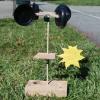
Weather Vane and Anemometer
Source Institutions
In this meteorology activity, learners construct simple devices to measure the direction and speed of wind.
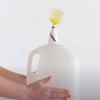
Rocket Mice
Source Institutions
In this activity, learners will make a model rocket to test the phrase "what goes up must come down." Learners will power their rockets with air pressure, and soon discover the effects of air resistan
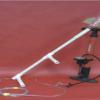
Handheld Water Bottle Rocket & Launcher
Source Institutions
In this activity, learners build handheld rockets and launchers out of PVC pipes and plastic bottles. Use this activity to demonstrate acceleration, air pressure, and Newton's Laws of Motion.
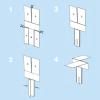
Copter Engineering
Source Institutions
In this activity, learners engineer a paper helicopter that spins to the ground when dropped.
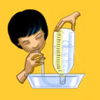
Lung Capacity
Source Institutions
This is an activity about lung capacity. Learners will measure their own lung capacity using a homemade spirometer.
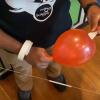
Balloon Rockets
Source Institutions
In this activity, learners will create a model rocket out of an inflated balloon attached to a straw on a taught string.

Rocket Launchers
Source Institutions
In this activity, learners work with an adult to build a rocket and launcher out of a plastic 2-liter bottle, flexible plastic hose, plastic tubing, toilet paper tube, and duct tape.
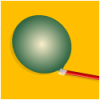
Rocket Pinwheel
Source Institutions
This is an activity about motion, power, air and Newton’s Third Law of Motion, which states that for every action there is an equal and opposite reaction.
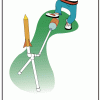
Pop! Rocket Launcher
Source Institutions
In this activity, learners construct a simple air pressure launcher for paper rockets.

Go Fly a Kite
Source Institutions
In this hands-on activity, children create their own kites that can fly indoors. Learners are exposed to basic concepts of gravity and air resistance.
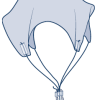
Sky Diver
Source Institutions
Students design and build their own parachutes in this hands-on engineering project.
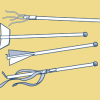
Blast Off!
Source Institutions
Students design and create their own air-powered rockets, in this hands-on activity.
